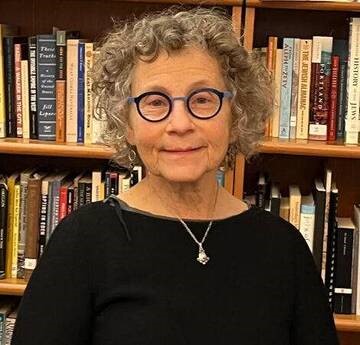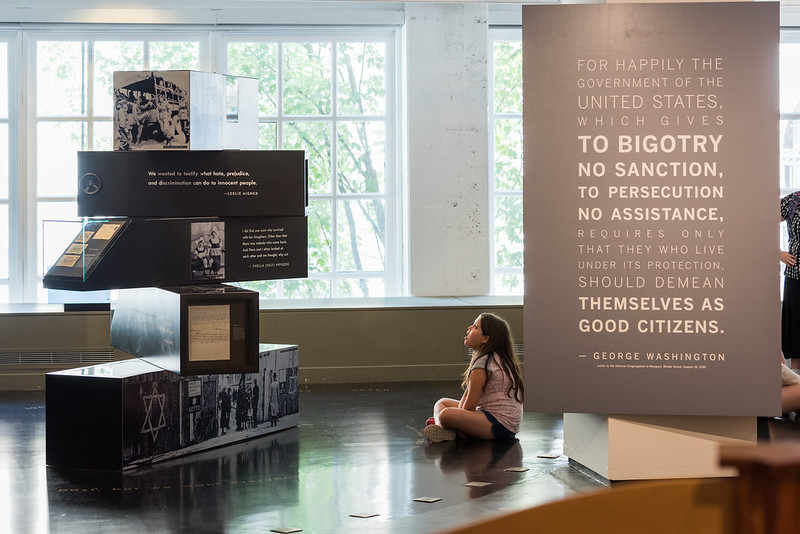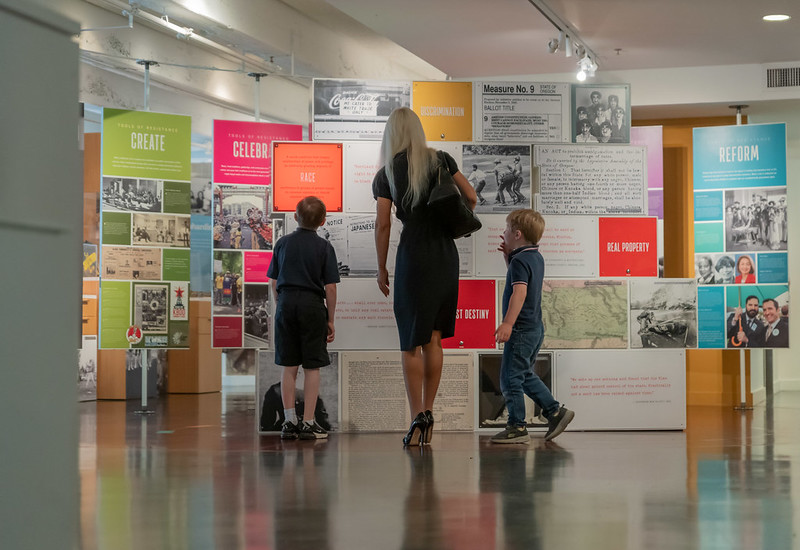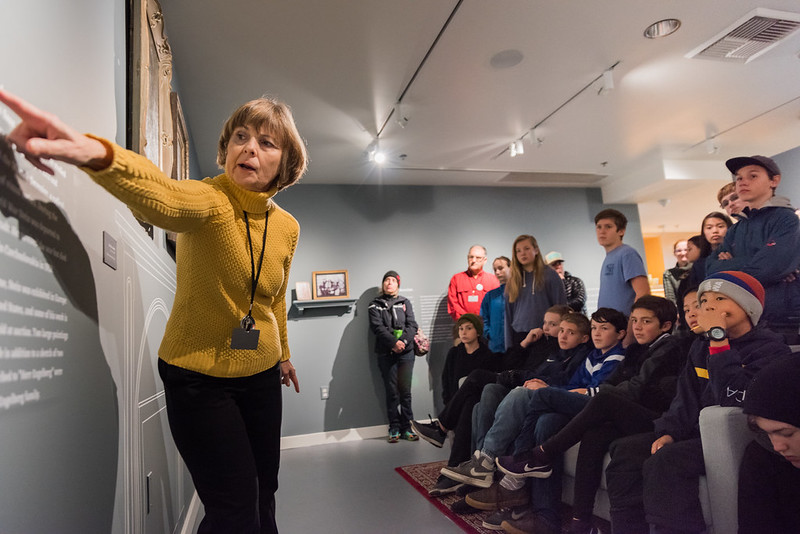The Murdock Trust is committed to the flourishing of all Pacific Northwest communities. During certain months of the year, we join those honoring the contributions, successes, and challenges of certain groups among us. May is Jewish American Heritage Month, and though listening to and uplifting our Jewish American neighbors is a year-round priority, we are grateful for the opportunity to sit down with one of our local leaders in this community, Judy Margles, for further reflections on this month.
“I am passionate about the opportunity to educate people about local history,” says Judy Margles, executive director of the Oregon Jewish Museum and Center for Holocaust Education (OJMCHE) in Portland, OR. At OJMCHE, she and her staff have this opportunity every day.

OJMCHE began as the Oregon Jewish Museum until, in 2014, it merged with the Oregon Holocaust Resource Center. Today, it has three core exhibits that underscore its thematic priorities: Discrimination and Resistance, An Oregon Primer explores the use of discrimination against various groups in the state; The Holocaust, An Oregon Perspective tells a history of the Holocaust through the stories of Oregon survivors; and Oregon Jewish Stories focuses on the experience of Jews in Oregon today. Each of these exhibits was born from the belief that we cannot learn universal lessons from the Holocaust and the Jewish experience unless we understand our own local history.
Fighting Hatred with History
“There are all these questions raging around us,” says Judy. “How do we understand the issues around the rise of white nationalism, xenophobia, houselessness, separation of families, treatment of asylum seekers? We started asking that question and realized we can’t understand that question unless we know our own history.”
And the history of Oregon is very problematic, says Judy. “There were exclusion laws here long before Oregon became a state. So we can kind of pull threads to understand why white nationalism is such a problem in Oregon today.”
Equipped with this historical understanding, it becomes easier to identify other forms of hatred and dehumanization in our society, and to fight against them. But in a historical moment where discourse is so engulfed with hatred and fear, navigating these difficult conversations is one of the greatest challenges of OJMCHE’s work.
“We really had to ask the question, ‘Where is our activism?’ And quite naturally, it is in education.”

Education as Activism
In addition to ongoing education through the Museum, OJMCHE staff go into schools with trainings for teachers and programs for students about antisemitism, the Holocaust, and Jewish culture. “I believe we’ve been in 26 of the 36 counties in the state,” says Judy, “and we’re seeing a demand for these programs. So I think that’s where we can make a change.”
This faithful work is needed now more than ever, because antisemitism is on the rise. A new report from the Anti-Defamation League (ADL), a partner of OJMCHE, shared that antisemitic incidents increased 36% in 2022, with the highest number on record since ADL began tracking in 1979.
“We see it happening,” Judy agrees. “I get notices when flyers are stuck around town. It’s demonstrable. We’re seeing it in the Pacific Northwest. We’re seeing it in the country. We’re seeing it in the world.”

Yet Judy and her staff believe firmly that antisemitism is not just a problem of the Jewish community. It’s a problem for all communities, because it is ultimately an issue of hatred, misunderstanding, and dehumanization. To fight antisemitism is to push back against the hatred at the heart of all discrimination.
That is one reason Judy is so encouraged by community partnerships and collaborations in this work. Especially since the pandemic, a group of four nonprofits in Old Town Portland – Lan Su Chinese Gardens, Portland Chinatown Museum, The Japanese American Museum of Oregon, and OJMCHE – have become close friends and partners, the kind who can call each other at any time to process an incident or brainstorm an idea. “We are really committed to the issues of the neighborhood and trying to find humane responses. So there’s real light there. What is giving me hope? It is collegiality. It is allyship. It is partnership.”
Another place Judy finds hope is the unanimous passing of the Holocaust and Genocide Education Bill for Oregon in 2019. This bill, which Judy and OJMCHE’s Director of Education, Amanda Coven, helped draft, will be fully implemented in the 2025-26 school year and will require K-12 education about the Holocaust and genocide through the lens of Oregon’s own history. It will teach future generations that the fight against antisemitism, along with all forms of hatred and discrimination, is a shared responsibility – a pursuit for the common good.

An Obligation to Justice
“Judaism and social justice are inseparable,” Judy explains. “It’s actually right in the Torah, in Deuteronomy. It says, ‘Justice, justice, you shall pursue.’ In Judaism there is the word mitzvah, which means an obligation. There are things we are actually obligated to do. We cannot shrug off the pursuit of justice.”
Across the Pacific Northwest, nonprofit organizations are joining OJMCHE in creating a more inclusive and safe region for those of all faiths, cultures, and backgrounds. Organizations like Camp Solomon Schechter and the Holocaust Center for Humanity in Seattle, the Wassmuth Center for Human Rights in Boise, and B’Nai B’Rith Camp on the Oregon coast are uplifting Jewish communities and creating spaces for all to learn from the experiences of our Jewish American neighbors.
This Jewish American Heritage Month, we are grateful to Judy and the team at OJMCHE, as well as each of these organizations and so many others who are working for the common good by honoring the experiences of Jewish American communities.
Todah rabah! Thank you!







